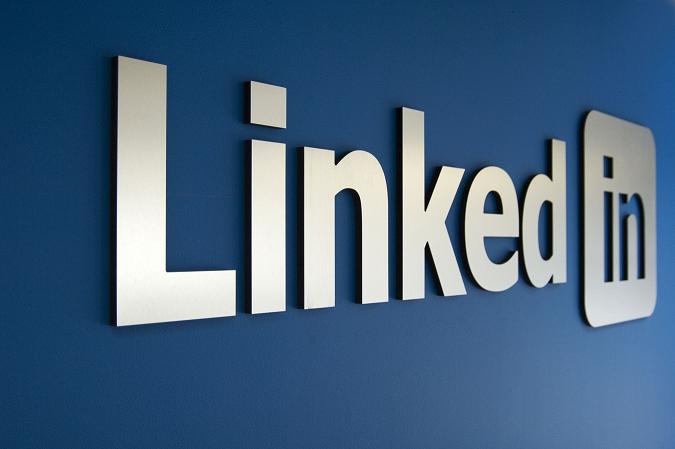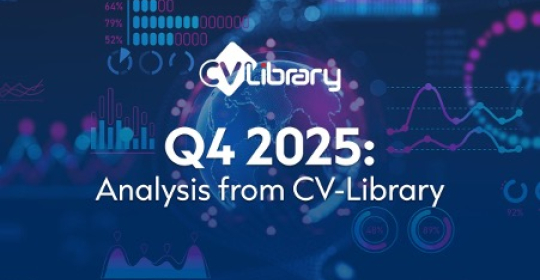- Only 4 in 10 UK business leaders are satisfied with their progress on AI
- More than half of UK business leaders say a performance gap is emerging between employees who embrace AI to reimagine how work gets done, and those only using it for basic tasks or not at all.
- Business leaders are turning to recruiters to solve the AI skills gap challenge, with 87% of UK recruiters saying their CEO is relying on them to build the workforce of the future
New UK research from LinkedIn reveals that unlocking AI's full potential is not just a tech challenge, but also a talent challenge - with businesses turning to recruitment teams to play a leading role in using AI to build the workforce of the future.
AI could unlock $532 billion of productivity gains in the UK, yet only 4 in 10 UK business leaders are satisfied with their progress on AI. Moreover, more than half of UK business leaders say a performance gap is emerging between employees who embrace AI to reimagine how work gets done, and those only using it for basic tasks or not at all.
Business leaders are leaning on their recruitment teams to help unlock AI’s potential and close this skills gap, with 87% of UK recruiters saying their CEO is relying on them to build the workforce of the future.
However, while a third of UK recruiters say the majority of their teams are AI power users (33%) - those who blend AI and human skills to drive strategic impact aligned to business goals - most say their teams are only using AI for basic tasks.
Recruiters who use AI tools say it's helping them to spend more time as a strategic advisor to the business (64%) and improve the candidate experience (65%). The risks of falling behind are real: UK recruiters warn that without building AI skills their teams may fall behind competitors (43%), struggle to attract top talent (39%), and miss growth targets (37%).
Janine Chamberlin, UK Country Manager, at LinkedIn: “Driving AI adoption isn’t just about embracing new technology, it’s about empowering people. The organisations seeing real success with AI are those prioritising skills development and embedding change management at every level. We’re seeing this in action with our customers here in the UK and globally who are using our AI agent, Hiring Assistant. UK firm Insite attributed a 20% increase in revenue directly to hires made through the tool. It’s a powerful example of what’s possible when businesses invest in both innovation and their people.”
Sam Wilson, Regional Head of Talent and Strategic HR Projects, Mott MacDonald: “AI is playing a pivotal role in enhancing our recruitment processes by streamlining or automating time-intensive administrative tasks. We are continuously assessing emerging AI capabilities to ensure our function remains competitive and delivers measurable return on investment to our business. We are utilising AI to conduct more intelligent searches and to facilitate more targeted outreach via LinkedIn Recruiter. Additionally, we have implemented an AI-driven interview scheduling solution, which has significantly reduced administrative burden and accelerated the scheduling process. By embedding AI into our workflows, we are empowering our Talent Acquisition team to dedicate more time to strategic, high-value engagements with candidates, hiring managers, and business leaders.”
David Brown, Chief Executive, Hays Americas: “At Hays, we believe AI will fundamentally transform the recruitment industry by accelerating hiring cycles, improving objectivity, and revealing deeper insights into talent potential. Our investment in AI goes beyond automation; it is about redefining how technology can enhance every part of the recruitment experience for our candidates and clients. By applying intelligent tools to simplify time-intensive tasks, analyze markets, and deliver richer data insights, we are enabling our consultants to focus where they add the greatest value: building relationships, offering strategic advice, and making informed, human-centered decisions. Our vision is to use AI to create a more personalized, efficient, and insightful recruitment journey where technology empowers people to make better choices and achieve better outcomes.”
Hiring Assistant, LinkedIn's AI agent for recruiters, is built into a recruiter's flow of work, launched globally last month. Hiring Assistant learns a recruiter’s preferences and enables recruiters to leverage AI in their day-to-day to drive real results. Today, recruiters using LinkedIn's Hiring Assistant are saving 4+ hours per role, reviewing 62% fewer profiles, and seeing a 69% improvement in InMail acceptance rates.
Methodology
LinkedIn’s Executive Confidence Index (ECI) is an online survey taken every quarter by ~5,000 LinkedIn members (at the VP-level or above) in 11 Countries (US, India, UK, Canada, Australia, Germany, Brazil, France, Spain, Italy, Netherlands). The most recent wave ran from June 11-25, 2025. Members are randomly sampled and must be opted into research to participate. We analyze data in aggregate and will always respect member privacy. Data is weighted by Seniority and Industry to ensure fair representation of executives on the platform. The results represent the world as seen through the lens of LinkedIn’s membership; variances between LinkedIn’s membership and the overall market population are not accounted for.
This research was conducted by Censuswide, with 500 Talent Acquisition professionals in full-time or part-time employment in the UK between 10.09.25 - 17.09.25. Censuswide abide by and employ members of the Market Research Society which is based on the ESOMAR principles. Censuswide are members of the British Polling Council.






